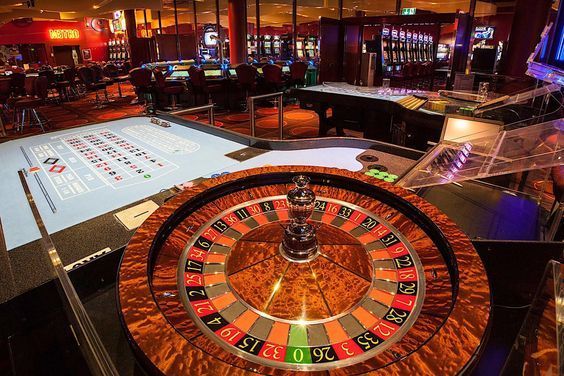
Evolution of Spinning Casino: From Classic to Cutting-Edge
admin
- 0
Introduction
The world of casinos has undergone a remarkable transformation over the decades. From the traditional spinning wheels of land-based casinos to the sophisticated digital interfaces of modern online platforms, the evolution of casino gaming reflects broader technological advancements and shifting player preferences. This blog post delves into the journey of spinning casino games, tracing their origins from classic slot machines to the cutting-edge innovations shaping the industry today.
The Birth of Casino Gaming
1. The Origins of Slot Machines
The inception of casino gaming can be traced back to the late 19th century with the creation of the first slot machines. Charles Fey, a mechanic from San Francisco, is credited with inventing the Liberty Bell in 1895. This early slot machine featured three spinning reels with symbols such as horseshoes, diamonds, and the iconic Liberty Bell. Players would win by matching these symbols, with the highest payout for landing three Liberty Bells in a row. Fey’s invention laid the groundwork for modern slot machines, introducing the concept of spinning reels and symbol matching.
2. The Rise of Land-Based Casinos
As the popularity of slot machines grew, so did the development of land-based casinos. The 20th century saw the emergence of glamorous casino resorts, particularly in places like Las Vegas and Monte Carlo. These casinos offered a variety of games, including roulette, blackjack, and poker, alongside slot machines. The spinning reels of these machines became a staple attraction, captivating players with their simplicity and potential for big wins.
The Golden Age of Slot Machines
1. The Mechanical Era
During the mid-20th century, slot machines underwent significant mechanical innovations. The introduction of the “fruit machine” in the UK, featuring fruit symbols and an increased number of paylines, added complexity to the gameplay. Mechanical slot machines also saw the addition of features like the “nudge” and “hold” options, giving players more control over their spins and enhancing the excitement.
2. The Emergence of Electronic Slots
The late 20th century marked the advent of electronic slot machines. In 1963, Bally Technologies introduced the first fully electronic slot machine, the “Money Honey,” which featured a bottomless hopper and automatic payout mechanism. This innovation eliminated the need for mechanical gears and levers, allowing for more complex and engaging gameplay. Electronic slot machines paved the way for video slots, which combined traditional spinning reels with advanced graphics and animations.
The Digital Revolution
1. The Advent of Online Casinos
The turn of the millennium ushered in a new era for casino gaming with the rise of online casinos. The first online casino, InterCasino, launched in 1996, offering players the ability to enjoy casino games from the comfort of their homes. Online slot machines quickly became popular due to their convenience and accessibility. These digital platforms allowed for a wide variety of themes, game mechanics, and bonus features, expanding the possibilities for spinning reels.
2. The Emergence of Mobile Gaming
The proliferation of smartphones and tablets in the 2010s revolutionized the gaming industry once again. Mobile casinos allowed players to access their favorite slot games on the go. Developers embraced responsive design and touch-screen technology, optimizing slot games for smaller screens while maintaining high-quality graphics and gameplay. This shift to mobile gaming also led to the rise of app-based casinos and mobile-exclusive promotions.
Cutting-Edge Innovations in Casino Gaming
1. The Integration of Augmented Reality (AR) and Virtual Reality (VR)
In recent years, AR and VR technologies have begun to make their mark on the casino industry. AR enhances the gaming experience by overlaying digital elements onto the real world, while VR immerses players in fully virtual casino environments. Both technologies offer innovative ways to experience spinning casino games. For example, VR casinos can transport players to a virtual casino floor where they can interact with slot machines and other games in a 3D space. AR, on the other hand, can bring slot machines into the physical world, allowing players to interact with them using their smartphones or AR glasses.
2. The Rise of Cryptocurrency and Blockchain Technology
The integration of cryptocurrency and blockchain technology is another significant development in the casino industry. Cryptocurrencies like Bitcoin and Ethereum offer players a new way to make deposits and withdrawals, providing faster transactions and enhanced security. Blockchain technology also enables provably fair gaming, where players can verify the fairness of each spin or hand, ensuring transparency and trust in the game outcomes.
3. Artificial Intelligence (AI) and Machine Learning
AI and machine learning are transforming the casino industry by enhancing game design, player experience, and security. AI algorithms can analyze player behavior to offer personalized game recommendations and targeted promotions. Machine learning models can also detect patterns indicative of problematic gambling behavior, allowing casinos to implement responsible gaming measures. Additionally, AI-driven chatbots and virtual assistants are improving customer service by providing instant support and answering player queries.
4. Gamification and Interactive Features
Gamification is a trend that incorporates game-like elements into non-gaming contexts to engage and motivate players. In the casino industry, gamification has led to the development of interactive slot games with features such as mini-games, leaderboards, and achievement systems. These elements add layers of excitement and competition, enhancing the overall gaming experience.
The Future of Spinning Casino Games
1. The Evolution of Game Mechanics
As technology continues to advance, we can expect further evolution in game mechanics. Innovations such as skill-based slot games, where players can influence the outcome through their actions, and adaptive difficulty levels that adjust to the player’s skill, are likely to become more prevalent. These developments will offer players new ways to engage with spinning casino games, adding depth and variety to the gameplay.
2. The Role of Data Analytics
Data analytics will play a crucial role in shaping the future of casino gaming. By analyzing vast amounts of data on player behavior and preferences, casinos can tailor their offerings to better meet the needs of their customers. This data-driven approach will enable more personalized gaming experiences, targeted promotions, and optimized game design.
3. The Impact of Regulatory Changes
As the casino industry evolves, so too will the regulatory landscape. Governments and regulatory bodies are continually updating laws and regulations to address emerging technologies and trends. The future of spinning casino games will be influenced by these regulatory changes, which will shape how games are developed, marketed, and played.
Conclusion
The evolution of spinning casino games from their classic origins to the cutting-edge innovations of today reflects the broader technological and cultural shifts within the gaming industry. From mechanical slot machines to virtual reality casinos, the journey has been marked by continual innovation and adaptation. As technology continues to advance, we can anticipate even more exciting developments in the world of spinning casino games, offering players new and immersive ways to enjoy their favorite pastime.
FAQs
1. What was the first slot machine ever made?
The first slot machine was the Liberty Bell, invented by Charles Fey in 1895. It featured three spinning reels with symbols such as horseshoes, diamonds, and the Liberty Bell.
2. How did the transition from mechanical to electronic slot machines impact gameplay?
The transition to electronic slot machines introduced more complex features and gameplay options. Electronic machines eliminated mechanical gears and levers, allowing for more advanced graphics, animations, and bonus features.
3. What are some of the latest technologies used in online casinos?
Some of the latest technologies in online casinos include augmented reality (AR), virtual reality (VR), cryptocurrency, blockchain technology, artificial intelligence (AI), and machine learning.
4. How does gamification enhance the casino gaming experience?
Gamification enhances the casino gaming experience by incorporating game-like elements such as mini-games, leaderboards, and achievement systems. These elements add excitement and competition, making the gameplay more engaging.
5. What role does data analytics play in the future of casino gaming?
Data analytics will play a crucial role in the future of casino gaming by providing insights into player behavior and preferences. This will enable casinos to offer personalized experiences, targeted promotions, and optimized game design.
Another key factor to keep in mind when choosing an online slot game is the Return to Player (RTP) percentage. Opt for games with a higher RTP, as this indicates the average amount of money that will be paid out to players over time. A higher RTP can potentially improve your chances of winning in the long run. hello88
